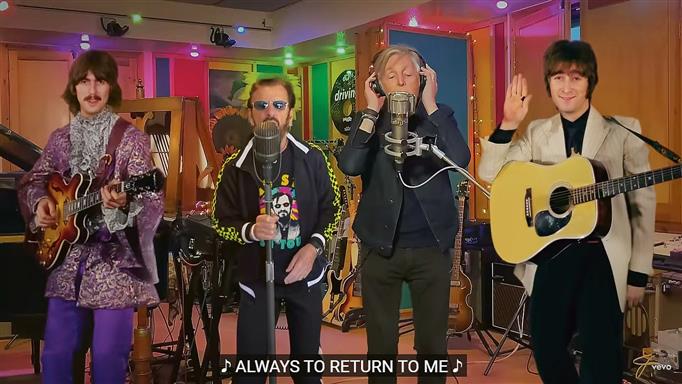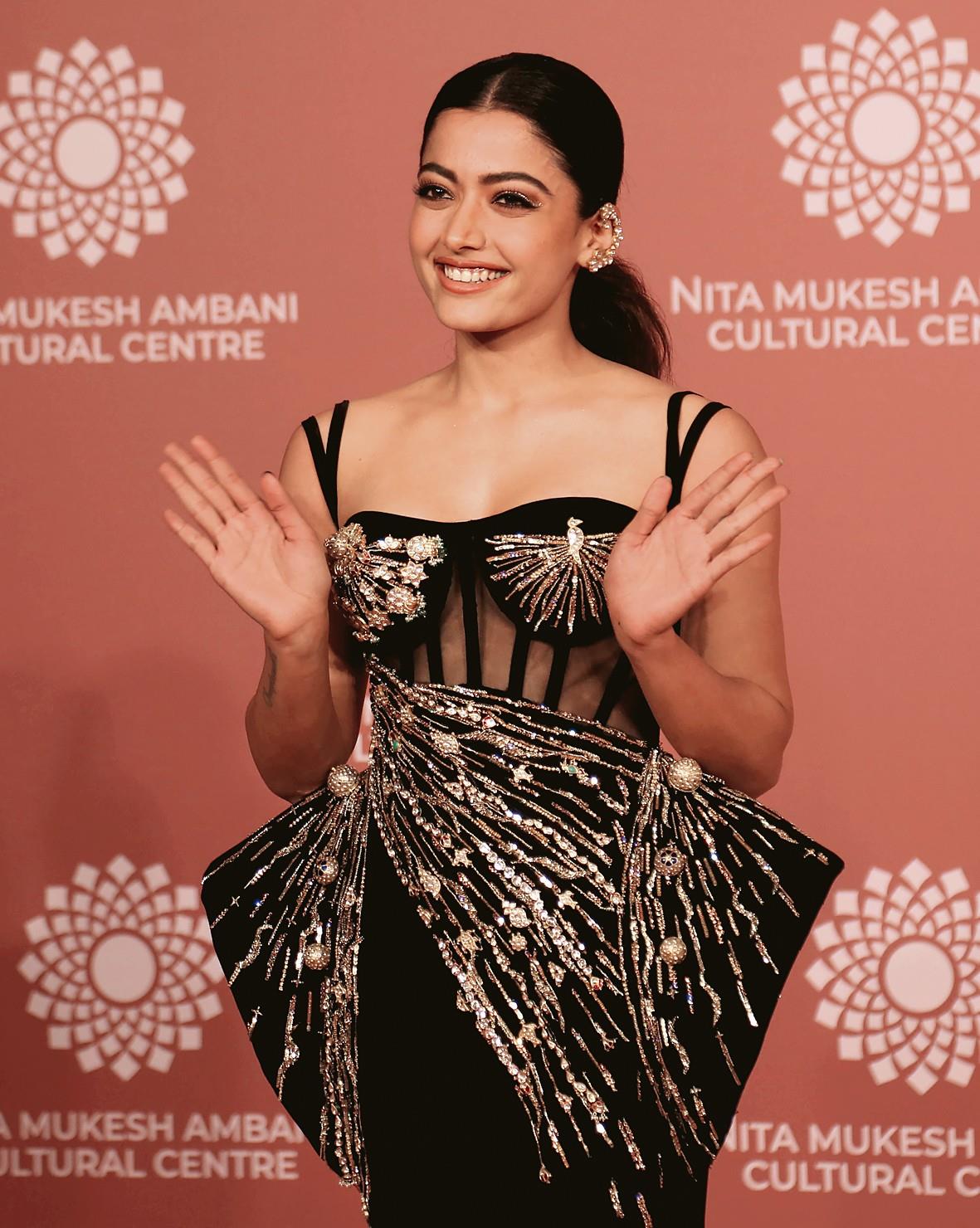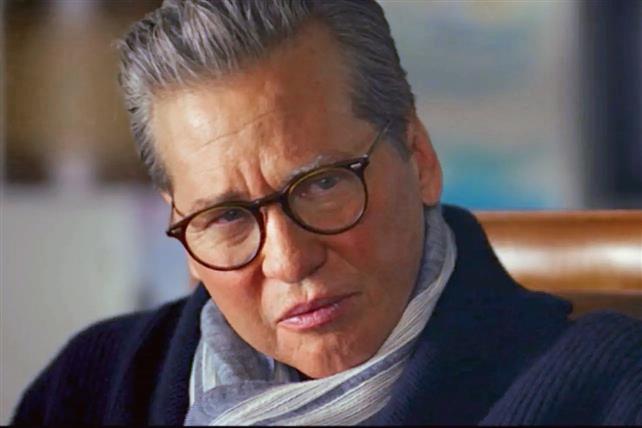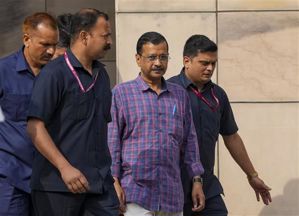
John Lennon's voice came alive in the Beatles' last song 'Now and Then'.
Nonika Singh
Artificial intelligence (AI) is not a substitute for human intelligence; it is a tool to amplify human creativity and ingenuity,” says American computer scientist Fei-Fei Li.

But is it really just an enabling tool? While the world is bracing for the challenges and opportunities that the new evolving world of artificial intelligence is unfurling, AI is also knocking at the doors of entertainment. Songs are being recorded, voices are being given to actors and somewhere, some place, film scripts are perhaps already being written using AI. If John Lennon’s voice came alive once again in the Beatles’ last song ‘Now and Then’, in ‘Top Gun Maverick’, Val Kilmer, who had lost his voice to cancer, found AI doing the job for his character, Lt Tom Iceman Kazansky. More recently, ‘Jashn-e-Bahaara’, the song from ‘Jodhaa Akbar’, was recreated by Aditya Kalway in Bollywood style of 1970s, using Mohammed Rafi’s AI-created voice. A techie based in the US used AI to create songs in Sidhu Moosewala’s voice. A whole lot of songs in Prime Minister Narendra Modi’s voice, obviously not sung by him, are going viral.

Welcome to metaverse, a universe in which actors could live long after breathing their last, singers could be heard crooning long after their voices have fallen silent. In this changing landscape of entertainment, which AI is all set to redefine in unimaginable ways, is the new technological advancement, nay marvel, an enabler or a threat? “Depends on where you are placed,” says Gunjit Chopra, writer and show-runner. “We are living in interesting times and if I can hear the voice of an artiste of a bygone era, it is fun and exciting. But as an artiste, I am not so sure. Art is an expression, a process, whereas AI is only result-oriented,” he says. Moreover, he questions, “Can it have a subconscious, original voice? Can it really give us an experiential feeling and truly master the art of storytelling?”
Filmmaker Ashish R Shukla, who is busy with his next, a horror flick, is happy with the possibilities that AI is bringing in its fold, but doubts if the human touch can ever be replicated. As he experiments with the looks of his creatures/entities that would spook the viewer, the AI tools are indeed coming handy. He also feels that in the world of advertising, where celebrities are often not available for dubbing, AI-generated voice could be a wonderful substitute. He has himself used AI voiceovers in corporate films. Besides cinema with dystopian themes, fantastical and superhero characters can certainly gain immensely from AI. In times to come, it could replace motion capture techniques, too. But Shukla adds, “Today, makers like Christopher Nolan are being lauded more as he is able to capture things in real time, rather than with the aid of Computer-generated imagery (CGI). So, AI-fuelled images could be called out.”
As of now, AI can only tap into elements and ideas that are already in public domain and not innovate as a human being can. As Gunjit puts it, “It could probably imitate, say, Aaron Sorkin’s writing... But what if tomorrow the screenwriter himself decides to write in a different style. Can it pre-empt that?” Nevertheless, the possibility of AI replacing writers and other creative artistes en bloc almost borders on a tangible threat.
“Writers,” opines noted filmmaker Smeep Kang, “are already feeling the heat. Interestingly, many are also using AI tools to enhance their writing, to imagine and reimagine specific scenes.” Indeed, AI will only get better with time. But could it get the better of us, as Stephen Hawking has been warning? Himanshu Bedi, chief technical officer (virtual production) of Vikram Bhatt’s film production house, can see no cause for alarm. Sure, they are using AI tools like MidJourney. But he feels all these can at best create a reference point and help in the pre-visualisation stage or on the story board. But the ultimate call will have to be of the creative person at the helm of it.
Kang feels that while it will surely enhance the quality of cinema, alongside lurks the danger of its misuse. And celebrities, he feels, are under real threat. He cites the examples of deepfake videos of Rashmika Mandanna and similar images of Katrina Kaif as instances of its menacing fallout. Such blatant abuse of technology makes him so wary that he is not too eager to use the innovation. The government of India has pressed the alarm bell, too, and plans to take swift action against deepfakes. YouTube has also decided to remove AI-generated content impersonating individuals.
Though the dangers might be real, no technology can be wished away and there has to be a collective effort to make the right choices. Indeed, AI intervention can’t be a ‘free for all’ realm and needs to be governed. Kang sees no harm in some film using, say, Dilip Kumar’s AI-generated voice or an image, provided they have the consent of the copyright holders. Artists sure will have to safeguard their rights. But Bedi feels people will continue to create similar videos and one could possibly take legal action. But, he adds, “By then, the videos would have already circulated.” In a country hard-pressed for justice, it could possibly open a Pandora’s box of litigation. It’s not as if laws are not in place. Anil Kapoor has only recently won a case against unauthorised AI use of his likeness.
But Shukla feels that there is time before AI truly captures our imagination, for, Indians are intrinsically old-school. And even when it does, it will not be as if an Arijit Singh will lose his job or AI will exist in isolation and the entire creative fraternity will be banished. Technically, it could mean that actors can just give their face and voice for a sum of royalty and not move a muscle. Theoretically, it is very much possible that you can make films of superstars posthumously. But, as Shukla observes, “You can take Irrfan Khan’s face, even his voice, but which actor can match the intensity of his performance? Science too has its limitations and even in a world driven by science, only a true artist will survive. After all, nothing is more original than original…” And with that, we rest our arguments for now.
Join Whatsapp Channel of The Tribune for latest updates.
#Artificial Intelligence AI #Deepfake #United States of America USA


























